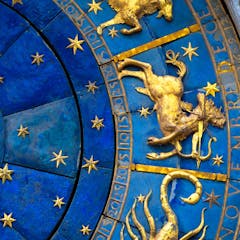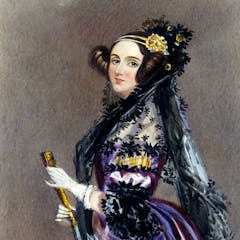
Articles on History of science
Displaying 1 - 20 of 122 articles

The skies and the gods were inseparable in Maya culture. Astronomers kept careful track of events like eclipses in order to perform the renewal ceremonies to continue the world’s cycles of rebirth.

For as long as trans medicine has been around, so has its opposition. The tactics of prior waves of anti-trans policies are still in play today.

A team of archaeologists discovered the remains of the 16th-century father of modern astronomy, who demonstrated that the Earth orbits the Sun.

Claims about the discovery of a coveted room-temperature superconductor peppered the news in 2023. We pulled three stories from our archives on what superconductivity is and why scientists study it.

A centuries-old experiment shows the differences between classical and modern physics. Physicists use thought experiments like this to think about how objects move both on Earth and in the stars.

Some Nobel Prize-winning ideas originate in strange places, but still go on to revolutionize the scientific field. George de Hevesy’s research on radioactive tracers is one such example.

Superconductivity may sound like science fiction, but the first experiments to achieve it were conducted over a century ago. Heike Kamerlingh Onnes, credited with the discovery, won a Nobel Prize in 1913.

Two decades ago, the nanotechnology revolution avoided stumbling by bringing a wide range of people to the table to chart its development. The window is closing fast on AI following suit.

Astronomer Caroline Herschel’s work discovering and cataloging astronomical objects in the 18th century is still used in the field today, but she didn’t always get her due credit.

The darkness of the night sky seems so obvious as to need no explanation – yet it has intrigued and baffled scientists for centuries.

Since ancient times, the stars have been set to music. Modern technology now enables scientists to convert images of space into real compositions.

Astrology and astronomy were once practiced side by side by scientists like Galileo and Kepler. And they’re more similar than you might think.

Lovelace was a prodigious math talent who learned from the giants of her time, but her linguistic and creative abilities were also important in her invention of computer programming.

Often thought of as eternal, mountains are vulnerable to climate change and tourism. To protect them, they should be recognised for their cultural values, not just their natural characteristics.

Crises are no longer something to fix but situations to manage.

From electricity to X-rays, the Doppler Effect and even quantum theory, Proust’s writing is littered with physics references.

Two simple rules can help us identify future-proof science.

Since antiquity people have harnessed sound as a weapon, and the practice continues – in new high-tech ways – today.

The son of a formerly enslaved mother, Charles Henry Turner was the first to discover that bees and other insects have the ability to modify their behavior based on experience.

As genetic engineering and DNA manipulation tools like CRISPR continue to advance, the distinction between what science ‘could’ and ‘should’ do becomes murkier.
